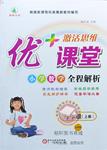
Do you often talk with your parents? Here is some advice on how to talk with them.
★ Try to start your talk with something fun. This will make talking easier. For example,
ask them questions about their day. How is work? They love this.
★ Make it clear what you want to tell your parents. If they have an opinion, let them finish and don’t stop their talking. Ask them to do the same for you.
★ Show them respect by listening to them care fully. Look at them in the eye.
fully. Look at them in the eye.
★ Be honest. Honesty builds trust. Life is good when your parents trust you.
★ If your parents don’t understand, that’s OK. It doesn’t mean that they don’t love you. Sometimes you have to explain the things to them again
★ When you finish the talk, thank them for listening. Say something like“Thanks, that helps.” It will let them know that is important to you and make them want to do it more often.
1.If you want to start the talk easily, you should say something ____________ at the beginning.
A. interesting B. dishonest
C. serious D. unhappy
2.While talking to your parents, you should look at them in the eye to show you _____ them.
A. hate B. understand
C. respect D. like
3.When the parents don’t understand you, you can_____.
A. ask them to stop B. argue with them
C. leave them angrily D. explain your ideas to them again
4.What’s the main idea of the passage?
A. We should respect our parents.
B. It’s important to trust our parents.
C. We should love our parents.
D. Some ways to communicate with our parents.
 激活思维优加课堂系列答案
激活思维优加课堂系列答案 活力试卷系列答案
活力试卷系列答案 课课优能力培优100分系列答案
课课优能力培优100分系列答案科目:高中英语 来源:2017-2018学年高中英语(江苏牛津译林版,选修七)Unit 2 单元综合测评 题型:任务型阅读
Shared habits of happy people
Happy people all share happy habits.It's as simple as that.The happiest people I know share these obvious habits.If you're looking to expand your general happiness, you may consider adopting these in your own life.
People may take an active role in their local city council, join a social club supporting causes they believe in, or find passion in their careers.In each case, the physiological outcome is the same.They engage in something they strongly believe in.This engagement brings happiness and meaning into their lives.
A happy life is a life shared with friends and family.The stronger the personal relationships are and the higher the frequency of interaction is, the happier a person will be.
Quite often people concentrate too much on negative outcomes and leave no time to reflect positively on their successes.It's natural for a person to want to correct undesirable circumstances and focus closely on doing so, but it is important to reflect mindfully on the good while striving diligently to correct the bad.A continuous general awareness of your daily successes can have a noticeably positive effect on your overall emotional happiness.
The power of endings is quite remarkable.The end of any experience has a great impact on a person's overall perception(看法) of the experience as a whole.Think about reading a well?written novel.Now imagine the ending is really poor.Even if the story was appealing until the ending, would you still be happy recommending the novel to a friend? People always remember the ending.If the ending is happy, the experience creates happiness.Always tie loose ends, leave things on a good note, and create happy endings in your life whenever possible.
Everyone possesses unique personal strengths.We all have different talents and skill sets.Emotional happiness comes naturally to those who use their strengths to get things done.The state of completion always creates a sense of achievement.If the achievement is based on your own personal ability to get the job done, the physiological rewards are priceless.
The best things in life are free.They come in the form of simple pleasures and they appear right in front of you at previous locations and arbitrary times.They are governed by Mother Nature and situational circumstances and captured by mindful awareness.It's all about taking a moment to notice the orange and pink sunset reflecting off the pond water as you hold hands with someone you love.Noticing these moments and taking part in them regularly will bring unplanned bursts of happiness into your life.
Shared habits | Explanations |
Be a part of something you believe in | If people are engaged in what they strongly believe in, it brings happiness and 1. into their lives. |
2. time with friends and family | If the personal relationships are stronger and the interaction is more 3., a person will be happier. |
4. on the good | If people often concentrate their attention on 5. outcomes, it will result in their overall emotional happiness. |
Create happy endings whenever 6. | If the ending is happy, the 7. will bring happiness to you. |
Use personal strengths to get things done | It is 8. that emotional happiness comes to those who use their personal strengths to get things done. |
Enjoy the natural joy of simple pleasures | If you are able to 9. the simple natural pleasures and enjoy them, it will bring unplanned bursts of happiness into your 10.. |
查看答案和解析>>
科目:高中英语 来源:2017-2018学年高中英语(江苏牛津译林版,选修七)模块综合测评 题型:任务型阅读
Because six out of every 10 accidental deaths happen to Chinese children who are playing, Shanghai Johnson & Johnson Pharmaceutical (SJJP), a US?based pharmaceutical giant, is working on a Safe Kids Program to prevent injuries and deaths.
Since the Safe Kids Worldwide was set up in 1987 by Johnson & Johnson in the US, it has contributed to a nearly 40 percent decline in the child death rate from accidental injuries there.Learning from the successful experience, SJJP began the Safe Kids Program in China in 1999.
A recent survey conducted by SJJP and Safe Kids Worldwide China indicates that more than half of the responding parents didn't know how to help their children keep safe and that half of the parents didn't know about their children's motor skill development at different ages.The survey covered 3,359 Beijing, Shanghai and Guangzhou's parents with children between infancy (幼年) and 14.
Additionally, more than 40 percent of the parents didn't know how to help their children to prepare well for sports activities.For instance, they don't know how to have their children warm up or realize the importance of a playground?check before sports activities.
To help correct the problems, SJJP and Safe Kids Worldwide China have been translating and editing safety education materials, sending them to parents free of charge, and delivering free lectures in kindergartens, schools and residential communities for the last 10 years.
Currently, a special team has been set up and traveling around 12 key cities of China to popularize child sports safety knowledge and offer free training for young parents.
Though SJJP refuses to say how much it has spent on the program, it says the number in terms of money, staff and technology, is large.
SJJP was founded by Johnson & Johnson in 1995 and specializes in manufacturing and development of non?prescription medicines (非处方药) and health care foods and products.So far,its investment has exceeded $41 million.
Title: Safe Kids Program
1. | The program is intended to 2. accidental injuries and deaths. |
Background | ◇It is sponsored by SJJP, which specializes in making and 3. non?prescription medicine and health care foods and products. ◇It follows the example of the successful experience of Safe Kids. Worldwide in the US, which accounts for a 40% 4. in such injury cases. |
5. | ◇More than 50% of the parents don't know how to help keep children safe. ◇Half of the parents are not 6.of their children's motor skills. ◇40% or more of the parents fail to help their children prepare well before sports activities, such as warming up and 7. the playground. |
Solutions | ◇They have been sending safety education materials to 8.and delivering lectures in schools and communities, all for 9.. ◇A special team has been 10.and is now traveling around to popularize child sports safety knowledge and offering free training for young parents. |
查看答案和解析>>
科目:高中英语 来源:2017-2018学年高中英语(江苏牛津译林版,选修七)模块综合测评 题型:单项填空
Interest is as ________ to learning as the ability to understand,even more so.
A. vital B. available
C. specific D. similar
查看答案和解析>>
科目:高中英语 来源:山西省2016-2017学年高一(普通班)下学期期末考试英语试卷 题型:完形填空
Alice had an argument with her best friend, Judy last Sunday. She thought.__________ was really difficult and wanted to copy Judy’s homework. But she refused. After that, they didn’t talk to each other for a few days. Alice didn’t know.__________to face her maths problem and she wondered if she could get on well with her friend again.
Yesterday afternoon, she saw a cool boy __________the violin happily by the road when she was walking home from school. The violin sounded so nice that she couldn't help stopping to listen to him.__________Alice didn't know what music he was playing, it made her feel better. After he finished the music,Alice walked over to him and said, “Thank you __________ your beautiful music. It gets me out of the really bad mood(心情),then she took out some __________and gave it to him. To her surprise, the boy asked him to take the money back. He explained that he wasn’t making money by playing the violin. He just wanted to __________others. That’s why he played it by the road .What a _______ boy he was ! Then Alice told him about her trouble.
He said,“You should learn to smile even if you are in difficulty. Listening to music is helpful. So why not listen to music as __________as possible ? Never lose heart! Believe in your friend! She has her own reason. And believe in __________! Everything will go well!”
Hearing these words, Alice went home with a smile. She believed she could make it.
1.A. Chinese B. Maths C. Science
2.A. why B. how C. when
3.A. carrying B. selling C. playing
4.A. Because B. When C. Though
5.A. for B. with C. from
6.A. music B. money C. food
7.A. have B. leave C. help
8.A. safe B. rich C. kind
9.A. often B. loudly C. soon
10.A. myself B. herself C. yourself
查看答案和解析>>
科目:高中英语 来源:2017-2018学年高中英语(江苏牛津译林版,选修七)Unit 1 单元综合测评 题型:阅读理解
If anything can be said about recordbreaking globetrotter (环球旅行家) Graham Hughes, it's that— throughout his travels— he's always kept his feet firmly on the ground.

The 33?year?old adventurer, from Liverpool, has become the first person to visit all 201 countries in the world without using a plane.
Hughes used buses, taxis, trains and his own two feet to travel 160,000 miles in exactly 1,426 days — all on a shoestring(资金微薄) of just $100 a week.
He spent four days “crossing open ocean in a leaky (漏的) boat” to reach Cape Verde on the North Atlantic, was jailed for a week in the Congo for being mistaken as a “spy”, and was arrested trying to “sneak (溜;偷偷地做) into” Russia.
And yesterday Graham Hughes trudged (长途跋涉) into Juba, the capital of South Sudan, to end the epic four?year journey that began in his hometown of Liverpool on New Year's Day 2009.
“I love travel, and I guess my reason for doing it was that I wanted to see if this could be done, by one person traveling on a shoestring,” he told the Christian Science Monitor. “I think I also wanted to show that the world is not some big, scary place, but in fact it is full of people who want to help you even if you are a stranger.”
Guinness has now confirmed that Hughes, who filmed the expedition for a documentary and raised money for charity Water Aid, has achieved the world record.
“The main feeling today is just one of intense gratitude to every person around the world who helped me get here, by giving me a lift, letting me stay on their couch, or pointing me in the right direction,” Hughes added.
1.Which of the following is NOT described Graham Hughes?
A. Globetrotter.
B. Adventurer.
C. The first person traveling around the world not using a plane.
D. Scientist.
2.Which of the following is NOT true according to the text?
A. When he traveled on the ocean, his boat was leaking water.
B. He was put into prison because of being considered a spy in the Congo.
C. He was caught in Russia because he stole something.
D. It was in South Sudan that he ended his epic four?year journey.
3.Why did Hughes make the world record that he had achieved into the film — the expedition for a documentary?
A. Because he wanted to be remembered by people all over the world.
B. Because he wanted to raise money for charity Water Aid.
C. Because he only wanted to record his experience.
D. Because he wanted to earn money.
4.What can we learn from the last paragraph?
A. When he traveled all over the world, he got a lot of help from different people.
B. He often sleeps on the coach.
C. He often points the direction for others.
D. He is grateful to the people who have helped him.
查看答案和解析>>
科目:高中英语 来源:2017-2018学年高中英语(江苏牛津译林版,选修七)Unit 1 单元综合测评 题型:单项填空
The young dancers looked so charming in their beautiful clothes that we took________pictures of them.
A. many of B. the number of
C. large numbers of D. a large amount of
查看答案和解析>>
科目:高中英语 来源:内蒙古2016-2017学年高二下学期期末考试英语试卷 题型:阅读理解
People do not analyze every problem they meet. Sometimes they try to remember a solution from the last time they had a similar problem. They often accept the opinions or ideas of other people. Other times they begin to act without thinking. They try to find a solution by trial and error. However, when all these methods fail, the person with a problem has to start analyzing. There are six stages in analyzing a problem.
First, the person must recognize that there is a problem. For example, Sam’s bicycle is broken, and he cannot ride it to class as he usually does. Sam must see that there is a problem with his bicycle.
Next, the thinker must define the problem. Before Sam can repair his bicycle, he must find out the reason why it does not work. For instance, he must determine if the problem is with the gears, the brakes, or the frame. He must make his problem more specific.
Now the person must look for information that will make the problem clearer and lead to possible solutions. For instance, suppose Sam decided that his bike does not work because there is something wrong with the gear wheels. At this time, he can look in his bicycle repair book and read about gears. He can talk to his friends at the bike shop. He can look at his gears carefully.
After studying the problem, the person should have several suggestions for a possible solution. Take Sam as an illustration. His suggestions might be: put oil on the gear wheels; buy new gear wheels and replace the old ones; tighten or loosen the gear wheels.
Eventually one suggestion seems to be the solution to the problem. Sometimes the final idea comes very suddenly because the thinker suddenly sees something new or sees something in a new way. Sam, for example, suddenly sees that there is a piece of chewing gum between the gear wheels. He immediately realizes the solution to his problem: he must clean the gear wheels.
Finally the solution is tested. Sam cleans the gear wheels and finds that afterwards his bicycle works perfectly. In short , he has solved the problem.
1..What is the best title for this passage?
A. Six Stages for Repairing Sam’s Bicycle
B. Possible Ways to Problem-solving
C. Necessities of Problem Analysis
D. Suggestions for Analyzing a Problem
2.In analyzing a problem we should do all the following except:
A. recognize and define the problem
B. look for information to make the problem clearer
C. have suggestions for a possible solution
D. find a solution by trial or mistake
3.. By referring to Sam’s broken bicycle, the author intends to _________.
A. illustrate the ways to repair his bicycle
B. discuss the problems of his bicycle
C. tell us how to solve a problem
D. show us how to analyze a problem
4.Which of the following is NOT true?
A. People do not analyze the problem they meet.
B. People often accept the opinions or ideas of other people.
C. People may learn from their past experience.
D. People can not solve some problems they meet.
5.As used in the last sentence, the phrase “in short” means _____.
A. in the long run B. in detail
C. in a word D. in the end
查看答案和解析>>
科目:高中英语 来源:青海省西宁市2016-2017学年高一下学期期末考试英语试卷 题型:短文填空
(共10小题;每小题0.5分,满分5分)
On keeping a Diary in English
Keeping a diary in English is one of the effective ways 1. (improve) our English writing ability. Compared with other forms of writing, it is 2. (short) and takes less time. It can help us to develop the habit of thinking in English. 3. we keep practicing, gradually we’ll learn 4. to express ourselves in English. In keeping a diary in English, we certainly run up against many 5. (difficult). In the first place, it often happens that we have trouble 6. (find) proper words and phrases to give expression to our mind. Secondly, there are many idiomatic ways of saying things in Chinese. And 7. is extremely hard for us to put them into English properly.
As far as I 8. (concern), my suggestion is that we should always have a notebook and a Chinese-English dictionary within easy reach. We can also turn to our English teacher 9. help, if necessary. In short, I believe that it is of great use to keep a diary in English for 10. development of our writing skills.
查看答案和解析>>
湖北省互联网违法和不良信息举报平台 | 网上有害信息举报专区 | 电信诈骗举报专区 | 涉历史虚无主义有害信息举报专区 | 涉企侵权举报专区
违法和不良信息举报电话:027-86699610 举报邮箱:58377363@163.com